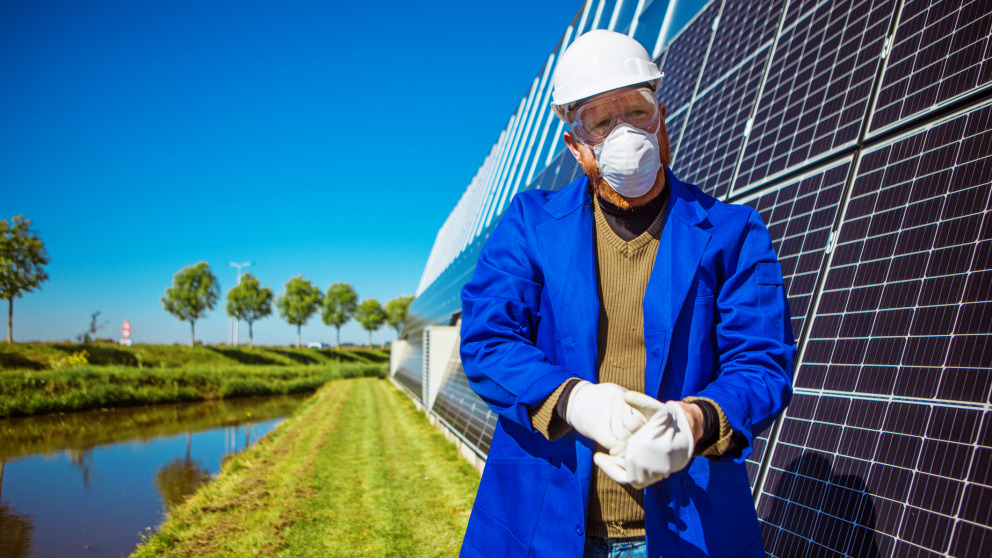The Impact of the Pandemic on Global Energy Policy
29.06.2020
The coronavirus pandemic has triggered an economic recession with potentially stronger effects than the 2008 financial crisis. The recession has been accompanied by a global decline in energy demand. A new study by the Institute for Advanced Sustainability Studies (IASS) examines the impacts of the pandemic on the global energy sector, and considers whether recent political decisions are accelerating the transformation of energy systems or perpetuating reliance on fossil fuels. The study includes an analysis of the energy policies of Argentina, China, Germany, India, Israel and the USA.

While the impacts of the crisis are similar across energy markets, policy responses are likely to vary from one country to the next, the authors explain. This is due to differences in the industrial bases of the countries examined in the study as well as their different policy environments and social conditions.
Both the US and Germany have seen a declining importance of the coal industry, and a growing clean energy sector. However, the importance of oil and gas in the US as well as the current political situation there may make it more difficult for the country to turn its back on fossil fuels. In contrast, in Germany there is a consensus in principle to phase out coal production.
Argentina is unlikely to see swift change: policymakers consider the oil and gas sector a key driver of development in the South American country, which still has a relatively small renewable energy sector. These circumstances are likely to hamper transition efforts in times of crisis, the authors conclude.
China and India would have benefited from an expansion of renewable energies, but both countries anticipated an increase in demand for energy in the long term, which may explain their reluctance to abandon fossil fuels completely. The USA, China, Israel and India also attach great importance to their countries' energy security, the authors argue. While this policy goal can be achieved with renewable energies, countries with local fossil fuel reserves still consider them valuable security assets.
Study recommends greener stimulus packages
The coronavirus pandemic and the resulting economic crisis could slow down the energy transition in certain countries. Stimulus packages to revive struggling economies in the wake of the global pandemic will be necessary, and some countries will attempt to strengthen their domestic fossil fuel sectors, even though the price cuts introduced by OPEC+ make this strategy an increasingly risky proposition, the authors note. This development heightens the risk of a globally uneven energy transition, bringing with it additional financial and political risks for late decarbonizers in particular, but also for the global community.
The researchers recommend that policymakers focus on greener stimulus packages as renewable energy generation promotes local value creation and does not contribute to the dependencies seen in the global energy market. The efforts of India, Israel, Germany, and China are a start, the authors argue, but an even more concerted push is needed to replace fossil fuels with renewables.
Publication:
Silvia Weko, Laima Eicke, Rainer Quitzow, Germán Bersalli, Flávio Lira, Adela Marian, Diana Süsser, Sapan Thapar, Bing Xue: Covid-19 and Carbon Lock-In: Impacts on the Energy Transition, IASS Study 06/2020. https://doi.org/10.2312/iass.2020.027

